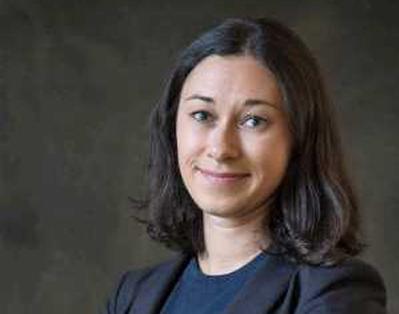
The phrase “both/and” allows us to reside with others, and learn from them, in the space between stark contrasts. It counters the notion that there is only one right answer to any given question. It takes the edge off of any tendency to believe that we are absolutely right, or righteous, in our views.
When I was in graduate school studying American literature, a popular way to respond to questions about dense seminar texts was to say, “I think that what we are really looking at here is a both/and scenario. The two interpretive claims that we have been discussing are not contradictory, and the text offers substantial evidence for each of them.”
Even now, dissertation filed and doctorate in hand, I still use this phrase in my daily life. I have found it to be particularly useful when I would like both a first and a second glass of red wine, or when I need to extract myself from an offensive oversimplification I’ve stumbled into in conversation with an acquaintance. “Of course, it is entirely possible to be both a dog and a cat person – in fact, I love collies, personally.”
The phrase “both/and” allows us to reside with others, and learn from them, in the space between stark contrasts. It counters the notion that there is only one right answer to any given question. It takes the edge off of any tendency to believe that we are absolutely right, or righteous, in our views.
“Both/and” has been the basis of more than one well-received seminar paper – this genre of writing being a staple of doctoral education in the humanities for a century and counting. Yet we often struggle to imagine our professional lives in these same terms. “No,” we insist, “there is only one legitimate career path once we complete our PhDs. We will publish specialized articles and monographs in our fields as researchers, positioned as tenure-track professors in a university much like the one in which we are being instructed.”
To draw further upon the vocabulary of the humanities graduate student, I would argue that this view is highly problematic. We would never accept the narrowness of thinking in our intellectual work that we so often display in our professional aspirations. For a new generation of doctoral students to imagine their future trajectories as including both scholarly practices and something else—some other, significant contribution or role within society—the training that they receive in their programs must change. Graduate seminars, the building blocks of PhD programs, are a great place to start.
At the University of Washington, faculty have been convening each summer at the Simpson Center as Mellon Summer Fellows for New Graduate Seminars in the Humanities. Funded by the Andrew W. Mellon Foundation, they develop new graduate seminars in scholarly practices that are both academically grounded and publicly relevant. Their work to date has been groundbreaking. Each course they have developed has a significant public scholarship component, which means that students are asked to undertake community-based research, trace the ways digital objects circulate on social media platforms, or curate film festival programming that reflects both a depth of knowledge about language and culture and an ability to engage local public audiences. In the coming year, we will see a new seminar on “public translation,” and another that will connect students directly to heritage museums in Seattle.
Imagine a course of study in which a doctoral student in Spanish enrolls in the seminars on public translation and film festival curation. And, also, a seminar on pedagogy, which perhaps is required by the department. And, in addition to all of these, any number of courses in which dense theoretical texts are assigned and discussed, seminar papers on those same texts are written and submitted, and later revised for publication as journal articles. Imagine that this student becomes a tenured professor of Spanish at a four-year college in California. She is asked to plan a film festival, an opportunity for the department to engage local audiences, donors, and students. She is prepared to take that project on. Imagine instead that she decides not to go on the academic job market at all, and through a series of professional encounters and promotions eventually becomes the executive director of an internationally recognized film festival, a major player in the arts and culture scene of the city of her choice. Both paths are of equal value, and both would be valid applications of her training. In different ways, each of these pathways would allow her to make significant contributions to her field and to the public good.
We can have both kinds of successful pathways from PhD programs, and more. And we should be thinking, always, in these terms.
Rachel Arteaga
Rachel Arteaga is Associate Director of the Simpson Center for the Humanities. In this role, she works closely with the faculty director and in collaboration with all members of the Simpson Center staff on the development, implementation, and assessment of academic projects, initiatives, and programs central to its mission.
